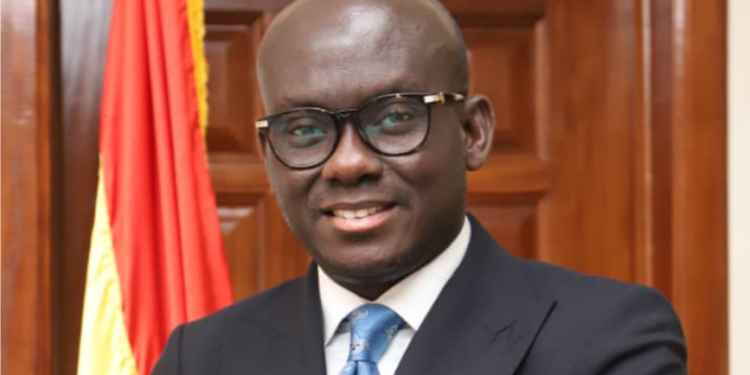Unveiling Corruption: The Attorney General’s leaked tape unravels Ghana’s integrity
In a revelation that has shaken the foundations of Ghana’s political landscape, a leaked tape implicating the Attorney General in discussions about ambulance procurement has sent shockwaves through the nation. As a concerned Ghanaian residing in Atlanta, USA, I feel compelled to address the gravity of this scandal and its profound implications for our democracy and governance.
The leaked tape, purportedly featuring discussions between the Attorney General and a witness named Richard Jakpa, has sparked widespread outrage and calls for accountability. Jakpa’s claims of irregularities in the ambulance procurement process raise serious questions about transparency, ethical conduct, and the integrity of Ghana’s public officials. The alleged discussions reveal a disturbing pattern of corruption and mismanagement that could have far-reaching consequences for the country’s governance.
Adding to the complexity of the situation, allegations have surfaced implicating prominent figures such as Ato Forson, the former Minority Spokesperson on Finance, and the current Minority Leader in facilitating the controversial procurement deal. These allegations cast a shadow over the credibility of Ghana’s political elite and underscore the urgent need for transparency and ethical leadership in government affairs. The involvement of high-ranking officials in the scandal highlights the pervasive nature of corruption and the challenges of maintaining accountability within the government.
Beyond the individuals directly implicated, the leaked tape raises fundamental concerns about the state of governance and corruption in Ghana. The apparent breach of trust at the heart of the justice system threatens to erode public confidence and undermine the very pillars of democracy. It is imperative that swift and decisive action be taken to address these allegations and restore faith in our institutions. The public’s trust in the judicial and political systems is crucial for the stability and progress of the nation, and any erosion of this trust can have dire consequences.
At a time when Ghana faces unprecedented economic challenges, the mismanagement of public funds allocated for essential services such as healthcare is reprehensible. The leaked tape serves as a stark reminder of the grave consequences of corruption, particularly in times of crisis when every resource must be allocated judiciously to meet the needs of the people. The misallocation of funds not only deprives citizens of critical services but also exacerbates the hardships faced by the most vulnerable populations.
Furthermore, the leaked tape underscores the importance of robust oversight mechanisms and whistleblower protections in safeguarding against corruption. Whistleblowers like Richard Jakpa play a crucial role in exposing wrongdoing and holding public officials accountable for their actions. It is imperative that their rights be protected, and their allegations thoroughly investigated without fear or favor. The courage and integrity of whistleblowers are vital in the fight against corruption, and they must be supported and safeguarded by the legal system and the public.
As Ghanaians, both at home and abroad, we must demand transparency, accountability, and ethical leadership from our elected officials. The fight against corruption requires collective action and unwavering commitment to upholding the principles of integrity and justice. We cannot afford to tolerate corruption or allow it to undermine the progress and prosperity of our nation. The active involvement of civil society, the media, and the international community is essential in this fight, as they can provide the necessary pressure and support to enforce accountability.
In conclusion, the leaked tape involving the Attorney General and allegations against Ato Forson serves as a stark reminder of the urgent need to root out corruption and uphold the rule of law in Ghana. As concerned citizens, we must remain vigilant and steadfast in our pursuit of a just and accountable government that serves the interests of all Ghanaians. The path to a corruption-free society is long and arduous, but it is a journey that we must embark on with determination and unity.
Together, let us stand united in our condemnation of corruption and our demand for transparency, integrity, and ethical leadership in Ghana. The future of our nation depends on our collective resolve to fight against corruption and to ensure that our leaders are held accountable for their actions. By fostering a culture of integrity and accountability, we can build a stronger, more just, and prosperous Ghana for future generations.
By Rashad Abdulai, Deputy Communications Officer, NDC-USA Chapter
–
June 11, 2024
40
Share


